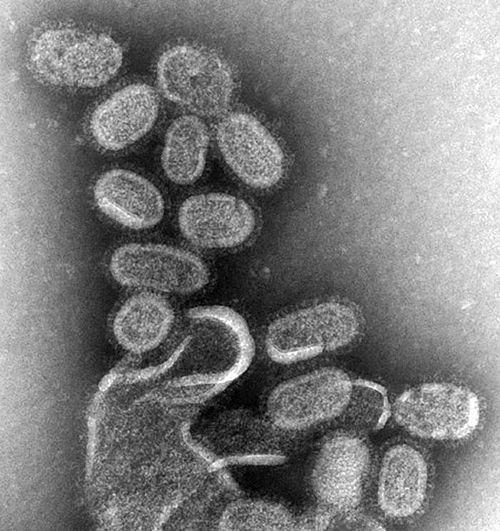Pathogennoun
Any organism or substance, especially a microorganism, capable of causing disease, such as bacteria, viruses, protozoa or fungi. Microorganisms are not considered to be pathogenic until they have reached a population size that is large enough to cause disease.
Pathogennoun
Any microorganism which causes disease; a pathogenic organism; an infectious microorganism; a bacterium, virus, or other agent which can cause disease by infection; - opposed to zymogene. The spelling pathogene is now archaic.
Pathogennoun
any disease-producing agent (especially a virus or bacterium or other microorganism)
Pathogen
In biology, a pathogen (Greek: πάθος pathos , and -γενής -genēs ) in the oldest and broadest sense, is any organism that can produce disease. A pathogen may also be referred to as an infectious agent, or simply a germ.
Microbenoun
(microbiology) Any microorganism, but especially a harmful bacterium.
Microbenoun
A microscopic organism; a microorganism; - particularly applied to bacteria and especially to pathogenic forms; as, the microbe of fowl cholera.
Microbenoun
a minute life form (especially a disease-causing bacterium); the term is not in technical use




















